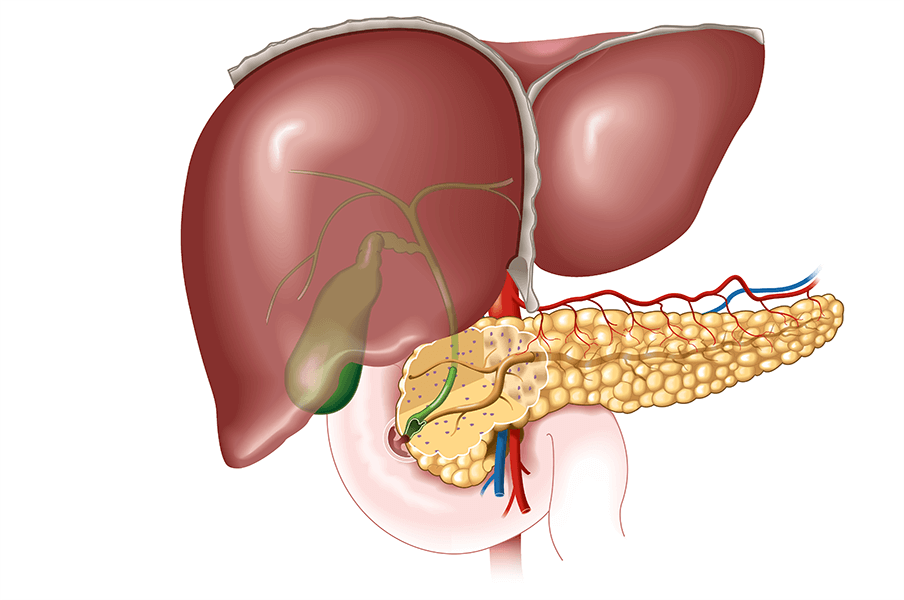What is a biliary obstruction?
The biliary system is a series of ducts that helps transport bile from your liver to your gallbladder, and then to your small intestine in order to help you digest food within the small intestine. A biliary obstruction is when one of these ducts gets blocked and does not allow the bile to pass freely throughout the biliary system. A biliary obstruction is commonly referred to as a bile duct obstruction because one of the most common places for these obstructions to occur is in the bile duct between the liver and the gallbladder. Contact our team of GI doctors at GI Alliance for more information about this condition and how it can be treated.

What causes a biliary obstruction?
The most common cause of biliary obstruction is gallstones. Gallstones can form when the amount of cholesterol or bilirubin in the bile is too high. These solid particles then flow through the bile ducts and obstruct the flow of bile.
- Other causes of a biliary obstruction include:
- Cysts of the common bile duct
- Bile duct inflammation
- Injury from other surgeries
- Tumors that have spread to the bile ducts
- Parasites
What are the symptoms of a bile duct or biliary obstruction?
Bile duct obstructions are not unusual and can generally be treated by a GI specialist. The most common symptoms of bile duct obstructions are:
- Jaundice
- Itching
- Dark urine
- Pale or light-colored stools
- Stomach pain
- Fever and night sweats
- Nausea and vomiting
- Abnormal loss of weight or appetite
If you’ve been experiencing a combination of the above symptoms, contact a gastroenterologist at your nearest GI Alliance location to schedule an appointment.
What will happen if my bile duct is blocked?
In the case of biliary obstruction, the bile is blocked from doing its part in breaking down foods. Bile is secreted by the liver to break down fats and allow them to be absorbed, as well as aiding in clearing waste out of the body. If left untreated, the biliary obstruction could lead to a life-threatening disease of the liver.
If you are experiencing the above symptoms and believe you might have a biliary block, contact the nearest GI Alliance location to you as soon as possible.
What is the standard treatment for a biliary obstruction?
A majority of the biliary obstructions can be removed by using an endoscope during an ERCP (endoscopic retrograde cholangiopancreatography). In severe, or extreme cases, surgery is required to remove the blockage and sometimes remove the gallbladder. If the cause of the obstruction is related to cancer, then the ducts will most likely need to be stretched and drained.

Quality treatment for your health
Biliary Obstruction FAQs
Is biliary obstruction common?
Biliary obstruction is not very common but occurs frequently enough to be a well-recognized condition, particularly in individuals with gallbladder disease (gallstones being the most common cause) and those with a history of pancreatic or liver diseases.
How can biliary obstruction be prevented?
Prevention often involves managing risk factors such as maintaining a healthy weight, managing cholesterol levels, and avoiding excessive alcohol consumption to prevent gallstone formation. Regular medical checkups can also help detect conditions that might lead to biliary obstruction before they become severe.
What lifestyle changes can help manage biliary obstruction?
After treatment for biliary obstruction, certain lifestyle changes can help prevent recurrence and support overall liver health. These include adopting a balanced diet low in saturated fats and rich in fiber, maintaining a healthy weight, exercising regularly, and avoiding alcohol. It’s also important to stay hydrated and follow any specific dietary guidelines provided by your healthcare provider.
